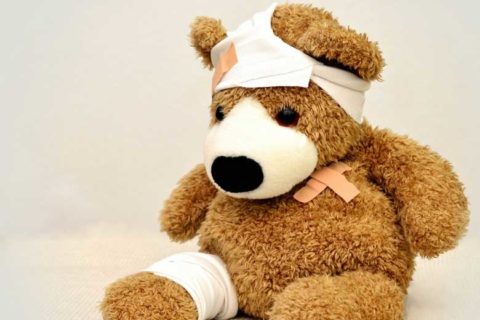How Can I Help My Child Overcome Dental Fear?

In our last post, we brought up the subject of dental anxiety and promised that we’d continue the conversation and give ideas about how to ease some of that fear. If you or someone in your family experiences dental fear, there’s no “quick fix,” but there is a way forward. Today, we’re going to talk about some of the most common stress factors as well as strategies for helping manage or overcome those fears.
Common Anxiety-Producers:
- Pain-related factors. This one’s no surprise, right? Of course, the fear of pain is part of this equation. The fear of pain itself could be coupled with several related fears as well, such as fear of needles, nervousness about side effects of the anesthetic, or concerns about the anesthetic not working properly.
- Feeling out of control or helpless. This is legit too, isn’t it? I mean, sitting in a chair with your mouth hanging open and someone poking around inside it with strange instruments is a pretty vulnerable thing. There’s also the uncertainty about what the dentist might find. If they identify an issue, the practical and financial implications could be very burdensome, so having that checkup feels risky.
- Bad past experiences. This could be anything. It could be the rude or intimidating dentist that you went to as a child. It could be a particularly painful procedure that you endured that sparks fear about all future dental visits. It could be an embarrassing interaction with classmates who mocked you when you came back to school after a dentist appointment, and your lip was still numb, and you couldn’t speak clearly. These are all real issues, and we are sympathetic.
- Self-consciousness. For anyone who needs their personal space, going to the dentist can be very uncomfortable. The dentist is literally in your face. And if you are nervous about things like bad breath (yours or theirs!), having an easily triggered gag reflex, social awkwardness (why do they always ask questions while their fingers are in your mouth?), and so forth, the distress builds up pretty quickly.
OK. Those are some common and normal dental fear factors. If you or someone in your family experience any of these or maybe even several of these anxieties in a debilitating way, you’re not alone, and there is hope. Let’s talk about some strategies that might help you and/or your kids.
- The number one best thing you can do is be really honest with your dentist about your fears. If they are dismissive or if you don’t feel heard or taken seriously, then look for a different dentist. A good dentist is going to be understanding and respectful of your concerns and will work with you to mitigate them.
- Ask questions. Take the edge off of some of the uncertainties you may have about what is going to be done throughout the appointment. Your dentist can walk you through what to expect ahead of time and then touch base with you about it along the way.
- Practice mindfulness techniques. Focusing on your breathing and maintaining awareness throughout your body can help you stay grounded and calm while you are in the dental chair. This works for kids too! Even if your kids are pretty young, you can start teaching them how to practice awareness and focus. It’s surprising how adaptable and resilient kids can be with a little coaching.
- Take breaks. When you start to feel overwhelmed, let your dentist know (you can arrange a hand signal ahead of time) that you need a break. Take the time you need. Sit up. Drink some water. Get re-oriented. Resume when you’re ready. If you feel embarrassed or like your dentist is impatient with you or your child, once again, you may need to look for a different healthcare partner who prioritizes creating a safe environment.
- Consider options like IV sedation. IV sedation provides a deep relaxation that allows you to be mostly unaware of the ins and out of the dental procedure.
- Distract and reward yourself. Feel free to bring your headphones and listen to music or an audiobook while you’re in the chair. Give yourself permission to pick up that treat you’ve been craving on the way home or back to work: you know, the milkshake or Chinese take-out or the small impulse purchase from Target that you’ve been resisting.
Bottom line, here’s what we hope you’ll take away from this post: The struggle is real. You’re not alone. We want to help you, and we are equipped to do so.


